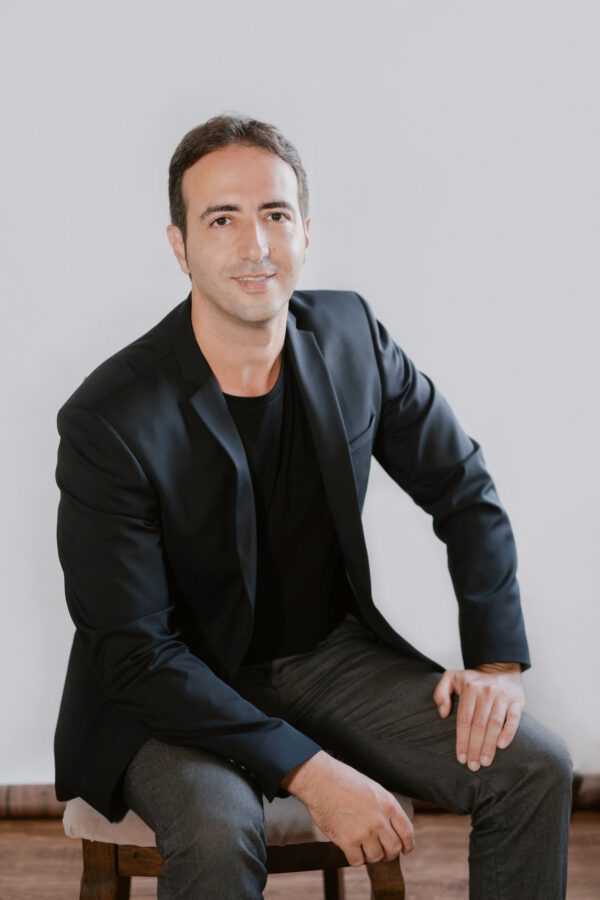OpTeamizer works with global giants such as Johnson & Johnson, Align Technology, Asensus Surgical, in addition to Rambam Hospital, Road2 Innovation Center, and Israeli startups
The global and Israeli healthcare industries have experienced a significant surge in the implementation of artificial intelligence (AI) in 2023, as reported by Tomer Gal, CTO and founder of the Israeli AI expert company OpTeamizer.
Tomer observed that technology giants are enhancing their sensors, enabling them to collect data on an unparalleled scale. He mentioned that devices like the Apple Watch, which can measure parameters such as atrial fibrillation, heartbeat, steps, and saturation, represent only the tip of the iceberg. According to him, with the advent of neural networks, today’s AI-powered systems not only yield far superior results than before.
Tomer emphasized that acquiring medical data is a critical challenge for large corporations and medical startups. Obtaining this data involves a thorough and meticulous process due to the essential nature of regulation and confidentiality in the healthcare sector. He perceives this rigorous approach as favorable, ensuring the responsible use of sensitive information.
Tomer Gal and his team are heavily invested in AI-driven healthcare solutions, which account for at least 60% of OpTeamizer’s operations. OpTeamizer works closely with the Road2, first of its kind Artificial Intelligence Center of Excellence in Israel. This collaboration allows healthcare startups to develop cutting-edge AI models and bring their ideas to life in the rapidly-evolving healthcare industry. Tomer says: “We built solid partnerships with leading medical institutes, which helps us to leverage cutting-edge technology and develop innovative approaches to healthcare.”
The healthcare industry is witnessing a wave of innovation, with companies like Asensus Surgical, Augmedics, and TechsoMed developing cutting-edge medical devices and digital health solutions.
Asensus Surgical is digitizing the interface between the surgeon and the patient and has developed the Senhance Surgical System’s Assurance Framework that provides real-time guidance and post-op analytics, enabling healthcare providers to monitor patient progress in real-time and improve patient outcomes. By digitizing the interface between surgeons and patients, Asensus Surgical creates a digital platform for enhanced controlled results. In addition, Augmedics‘ xvision Spine System® provides real-time augmented surgical reality guidance during spinal surgeries, enabling surgeons to navigate the spine accurately while potentially minimizing radiation exposure, reducing surgical time, and enhancing surgical outcomes.
TechsoMed’s technology, which integrates AI and machine learning algorithms, is the world’s first image analysis system that predicts and visualizes the 24-hour post-treatment ablation morphology in real-time, allowing physicians to see where they have previously been blind.
Navigating the regulation of AI-powered medical devices presents complex challenges. Although most of these devices have successfully obtained clearance from the FDA via the K510(k) premarket notification process, attaining regulatory approval can still be demanding. “Healthcare carries considerable responsibilities, and maintaining transparency is crucial for fostering understanding and trust in the system’s operation”, says Tomer.
OpTeamizer has been a significant player in AI healthcare, offering professional training for developers at R&D centers on NVIDIA‘s development tools. Following its appointment as NVIDIA’s first education service delivery partner in the Middle East and Israel, the company has been dedicated to advancing AI solutions in healthcare. Tomer Gal highlights NVIDIA’s vital role in today’s industry by providing an ecosystem and software stack for healthcare AI development.
Credit: OpTeamizer
Picture- Tomer Gal- Opteamizer-Photo Credit- Olga Savina



















